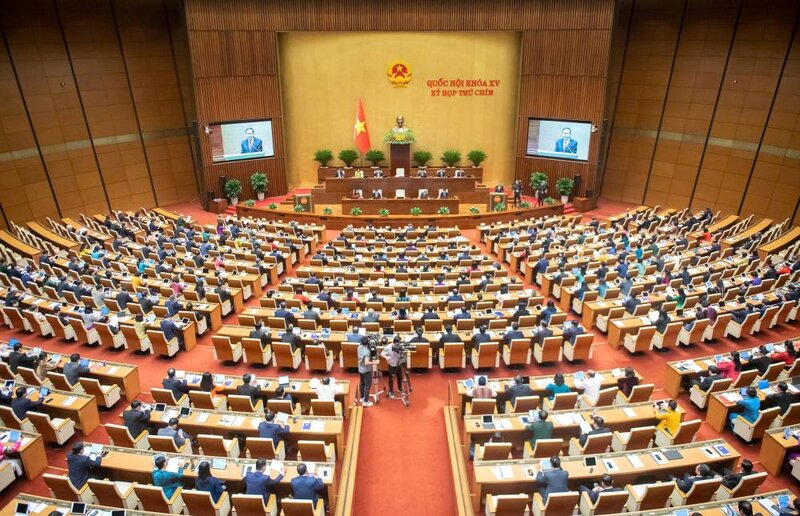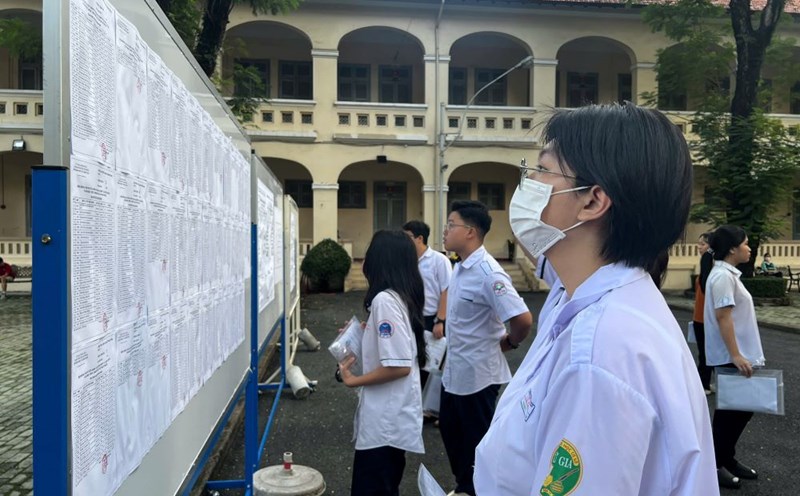Taking people and businesses as the center
In the context of Vietnam increasingly integrating deeply into the world economy and strongly transforming on the path of sustainable development, the requirement for the legal system and the State administrative apparatus is to be modern, transparent, efficient and serve people and businesses in the optimal way.
To do that, the prerequisite is to innovate thinking in law-making and reforming administrative procedures. In which, it is necessary to innovate the law-making process in a professional, scientific, timely, feasible and effective direction. It must originate and promptly meet development requirements and rapid changes in practice, taking people and businesses as the center.
At the National Conference on disseminating and implementing Resolution No. 66-NQ/TW and Resolution No. 68-NQ/TW of the Politburo on private economic development, Politburo member and National Assembly Chairman Tran Thanh Man affirmed that the work of law making and enforcement has made an important contribution to maintaining political stability, ensuring social order and safety, promoting socio-economic development and international integration.
According to National Assembly Chairman Tran Thanh Man, Resolution 66 also clearly states 5 guiding viewpoints, in which it is necessary to identify law making and enforcement as a "breakthrough of breakthroughs" in perfecting the country's development institutions.
Law making must closely follow reality, selectively absorb the elite of humanity, make institutions and laws a competitive advantage, a solid foundation, a strong driving force for development, create space to promote "double-digit" economic growth; improve people's lives.
In addition, it is necessary to improve the effectiveness of law enforcement, focus on building a culture of law compliance, ensure the rule of the Constitution and the law, and ensure close connection between law making and law enforcement. Clearly define investment in policy and law making as investment for development.
The National Assembly Chairman said that an important highlight is fundamental innovation in the thinking of law-making. The law must fully and promptly institutionalize the Party's policies; come from the interests of the whole country, prioritizing the protection of human rights and civil rights.

The law is identified as a competitive advantage of the country, therefore Resolution 66 requires a drastic abandon of the thinking of "if you can't manage it, then ban it", instead, you must encourage creativity and unlock development resources.
L legal regulations need to be stable, simple, easy to understand, with people and businesses as the center. The work of law-making is required to be very proactive in strategic research and selective consultation with international experience, in order to increase predictability and improve policy quality" - National Assembly Chairman Tran Thanh Man emphasized.
Resolution 66 requires breakthroughs in law enforcement. The law is enforced fairly, strictly, consistently and promptly, closely linked to the law-making process. Promote the spirit of serving the people of civil servants, ensuring the viewpoint that "people and businesses are allowed to do what the law does not prohibit".
Law enforcement prioritizes promoting socio-economic development, science and technology, innovation and digital transformation, while focusing on essential areas such as food safety, environmental protection, and cyber security.
Ensuring the law is truly a tool to promote development
In fact, in recent times, the Vietnamese legal system has made remarkable progress. However, the situation of overlapping, inconsistent, and unfeasible laws still exists in many areas.
One of the underlying reasons is that the thinking of law-making is still heavily "management" instead of taking people and businesses as the center.
Innovation in thinking in law-making is not only about improving the quality of legal documents, but also changing the approach - from "prevention, control" to "creating conditions and encouraging development".
This requires the process of drafting and promulgating laws to have the substantial participation of affected subjects; ensuring that the law is truly a tool to promote the development and protect the legitimate rights of citizens and businesses.
Innovation in the thinking of law-making and administrative procedure reform is an urgent and long-term requirement in the process of national development. It is not only a matter of management techniques, but also a change in thinking, awareness and responsibility of the team of public employees.
When the law is transparent, administrative procedures are simple, the investment environment is favorable and people are better served, that is also the time for Vietnam to affirm its position as a modern, democratic and sustainable country.
In the article "Strongly innovating the work of law-making and enforcement so that the country can firmly enter a new era" - Dr. Nguyen Hai Ninh - Minister of Justice - emphasized the need to fundamentally innovate the thinking of law-making, considering this a "breakthrough of breakthroughs", the law must truly be the foundation for development, serve development and promote development; "taking people and businesses as the center and subject".
According to the Minister of Justice, it can be seen that recently, there has been a lot of time to promote fundamental innovation in law making and enforcement, in which, it is necessary to focus on some key solutions such as the need to fundamentally innovate the thinking of law-making, considering this a "breakthrough of breakthroughs" in perfecting development institutions. In the new era, the law must truly be the foundation for development, serving development and promoting development; "taking people and businesses as the center and subject".
Law-making work must apply a practical and practical approach; ensure suitability with the actual conditions of the country, answer the problems of life and find a path for development from practice.
Changing the thinking of law-making must start from resolutely changing awareness, breaking all barriers, group interests, and local interests of sectors, localities, organizations, and individuals in law-making. Focus on cutting and simplifying administrative procedures, reducing compliance costs, eliminating the "request - give" mechanism; creating a healthy and favorable investment and business environment.











